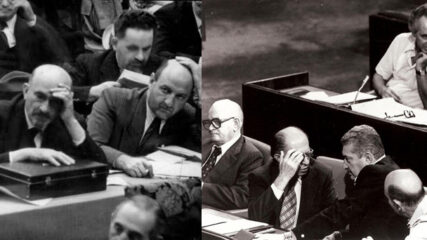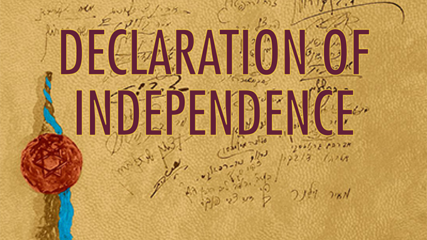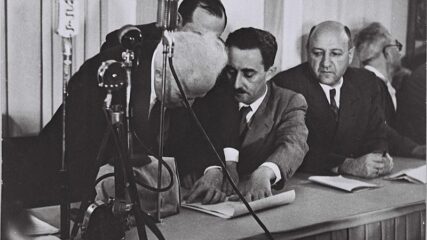9 Key Questions About Theodor Herzl’s “The Jewish State,” February 14, 1896CIE+
Nine questions guide key understandings about Theodor Herzl’s “The Jewish State.”

Nine questions guide key understandings about Theodor Herzl’s “The Jewish State.”

When Prime Minister Ehud Olmert resigned in 2008 amid allegations of bribery, Israel came within reach of a milestone in gender equality — one that was a credit to the Jewish state as much as…

By Ken Stein and Scott Abramson, March 23, 2025 Zionist/Jewish Economic Development in Palestine Before 1948 Jewish physical growth in Mandatory Palestine in the period known as the New Yishuv was sufficient through land acquired…

Neither Israel’s political culture nor Israel’s democracy based on Jewish self determination simply materialized on May 15, 1948. A connection exists from Jewish self-rule in the Diaspora to Zionist political autonomy during the Yishuv and to contemporary Israeli political culture. Likewise, the origins of Israeli democracy are found in the hundreds of years of Jewish Diasporas transitioning into the Zionist movement to the state; from aliyot before the Palestine Mandate to 1948 and since. Components of Israeli political culture…

Explore the foundational text of the State of Israel.

Israel, like Britain, is a parliamentary democracy, but, like Britain, Israel lacks a formal constitution. The following items show how the system works and include Israel’s proposed 1948 constitution and the Basic Laws that fill…

Elections, Parliament, Political Culture, Prime Ministers, Parties and the Voting Public Israel has a parliamentary system of government with some unusual features in the elections and the creation of multiparty ruling coalitions, as explained by…

Hosted by the Y&S Nazarian Center for Israel Studies at UCLA All rights reserved to Professor Avineri and the Nazarian Center Transcribed by the Center for Israel Education, Atlanta, Ga. January 15, 2021. Transcript Dov…

Using original sources, learners will explore the origins of Yom Hashoah, Holocaust Memorial Day, in Israel. The unit includes historical discussion on the importance of commeorating the tragedy of the Holocaust and different proposals that were put forward in the Land of Israel both before and after the creation of the state doing so. A writing prompt is included for use in school settings.

Over the last decade, the gap between the military and political elites in Israel has increased and eventually peaked in 2019, when a group of senior officers who had just retired from the Israel Defense Forces (IDF) formed a new party – led by three former chiefs of staff – and called for the replacement of Prime Minister Benjamin Netanyahu’s government. This gap has developed because Israel’s previous governments have represented a new kind of polarizing, right-wing politics beyond what is considered a shared national common sense.

The State Comptroller’s Office is the only institution outside of the defense establishment that conducts comprehensive and independent audits of security matters; hence its importance to national security. In the view of newly-appointed State Comptroller and Ombudsman Matanyahu Englman, an audit is meant to be a constructive process that addresses issues of national value; the audit process is a tool that supports the government and prime minister; audits that are liable to affect real-time decision making should be avoided; and the Comptroller should also report on the success of those audited. By contrast, his predecessor, retired judge Yosef Shapira, stressed that the State Comptroller is not the government’s in-house auditor and that audits do not depend on the good will of any external party.

From a practical standpoint, the Nation State law’s ramifications are not yet clear. Neither its opponents nor its supporters ever claimed that it would immediately create a totally new situation in Israel. By its nature, a constitutional amendment of this sort, at the vaguest and most general level possible of the definition of the state, years will go by before all its provisions have been interpreted and before they trickle down to substantive changes on the ground.

The discussion surrounding the Nation-State Law has sparked a heated debate in Israeli society. One side claims that the law is a proper and necessary legislative anchor for the national character of the State of Israel as the state of the Jewish people, against those who seek to deny the Jewish people’s right to a national home in its homeland. The other side argues that this is discriminatory legislation, which undermines the democratic nature of the State of Israel.

In the months before the UN vote to partition Palestine into Arab and Jewish states in November 1947, the Jewish Agency leadership there had to overcome a series of foreign policy obstacles working against the Jewish state’s establishment.